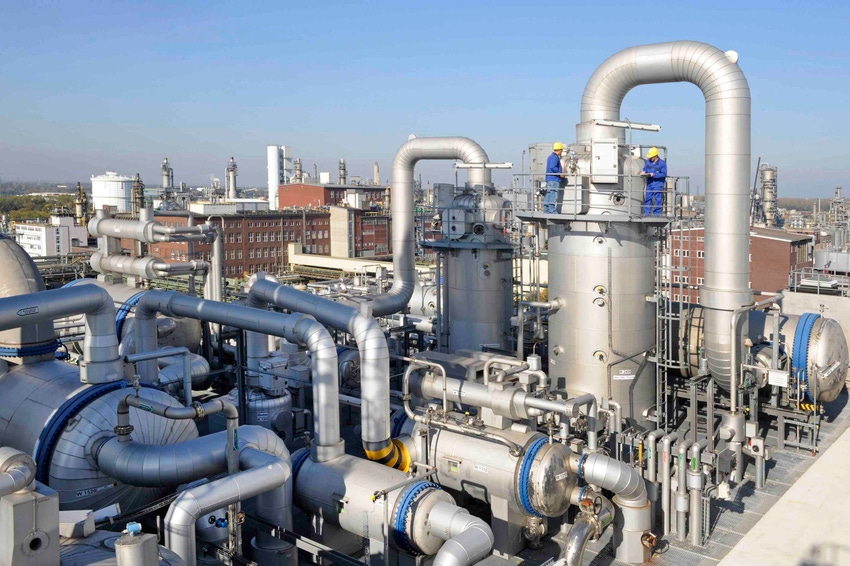BASF reports progress on plant restart
BASF is on schedule with repairs to its citral plant in Germany.

There is good news coming from BASF this week. The company has announced that it is on schedule with progress to repair its citral plant in Ludwigshafen, Germany, after a fire shut down operations last October.
In an announcement issued April 3, the company noted that as of the end of March, it had mechanically completed the extensive repair work and was filling the plant with the first chemicals.
Last year’s fire forced BASF to declare force majeure for its citral and isoprenol-based aroma ingredients. Also affected were the company’s animal and human vitamin A and E products as well as several of its carotenoid products. As a result, supplies of supplement vitamins A and E for animal diets have been relatively scarce since late 2017, with prices skyrocketing.
The plant fire occurred during a scheduled maintenance shutdown. At the time, BASF said the cleaning process, follow-up inspection, repair and restart of the citral plant would take several weeks. However, the start-up turned into a much larger project once the full extent of the damage was realized.
While there was only a minor impact on the structural components of the plant, the fire ended up destroying key electrical components needed to steer production processes. BASF said over the last five months, its team has been working around the clock to clean the part of the plant affected by fire and/or smoke. Affected cables were dismantled, and other major repair work, including electrical wiring, has been conducted.
The plant’s restart is expected to take several weeks. After the initiation of citral production, the company said downstream products need to be manufactured in a step-wise approach.
The availability of downstream products from BASF’s aroma ingredients business will vary product by product. For about 80% of the portfolio, manufacturing of initial volumes will start within the first four to eight weeks after full start-up of the citral plant. The remaining products, such as acetates, subsequently will be manufactured as soon as possible.
Production of vitamin A and E products for human nutrition and animal nutrition will be able to restart only once the supply of citral is re-established and corresponding intermediates for the product become available. The downstream products of BASF’s human and animal nutrition businesses, as well as the cosmetic ingredients business (vitamins A, E, several carotenoids), are expected to become available for shipment 6-12 weeks after the start-up of the citral plant, meaning sometime in the May-to-July period. BASF said actual availability will depend on the product involved.
Manufactured product will be shipped, with lead times dependent upon the region and country involved -- taking anywhere from a few days or weeks for Europe, for example, to several weeks or months to go to Asia, Latin America and North America.
About the Author(s)
You May Also Like



